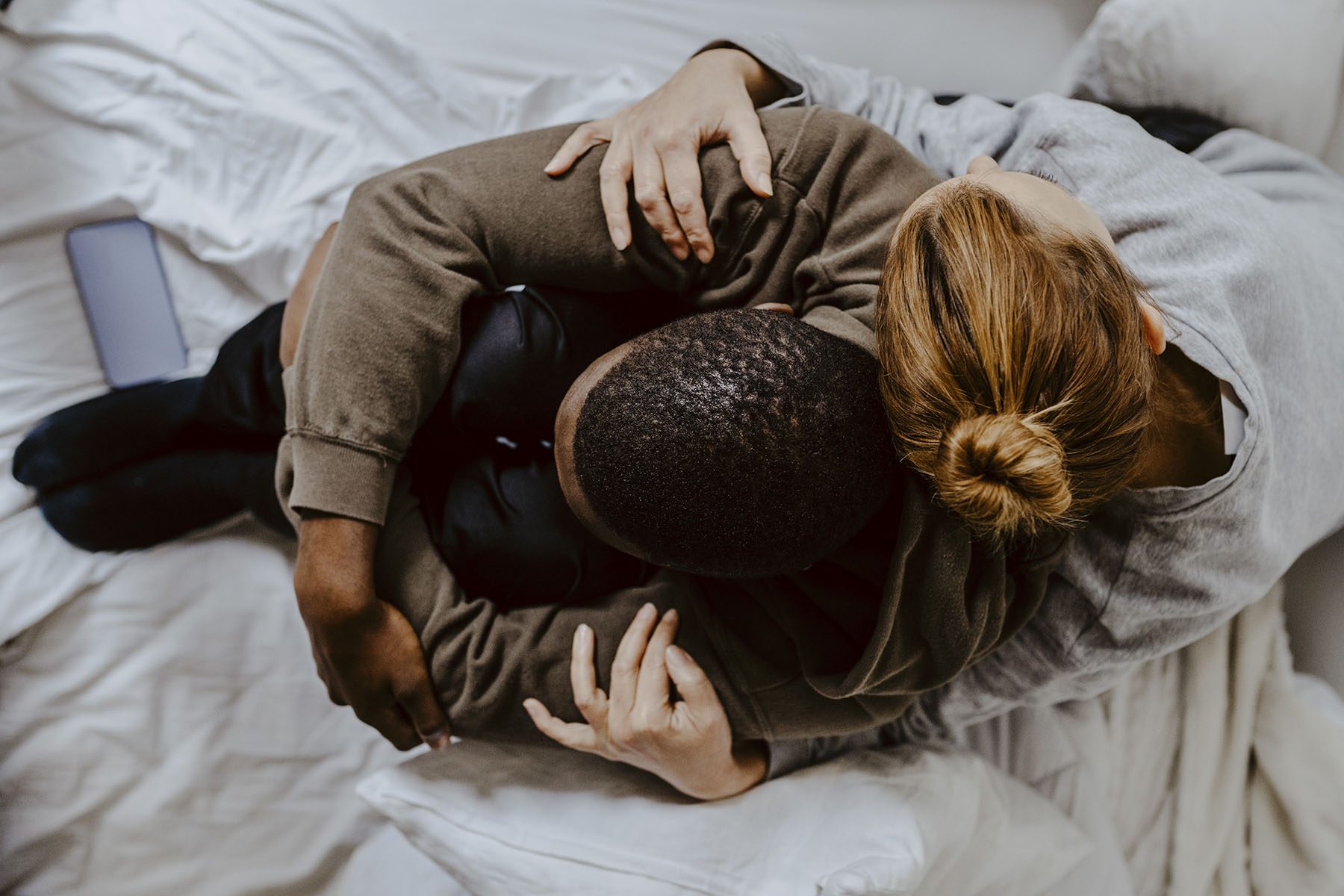Your trusted source for contextualizing the news. Sign up for our daily newsletter.
The number one concern among parents? Their children’s mental health, according to new polling from the Pew Research Center of 3,757 U.S. parents with children under 18.
Forty percent of parents with minor children said that they were “extremely” or “very” worried about their children struggling with anxiety or depression, and 36 percent reported feeling “somewhat” worried.
Bullying was the second highest concern, with 35 percent of parents reporting that they are “extremely” or “very” worried and 39 percent reporting that they are somewhat worried.
Mothers were more likely than fathers to express concern about most issues polled, including their children’s mental health. There were also differences along race and socioeconomic status lines. While bullying was the number one concern for Black parents and a close second for Asian parents, Black and Asian parents expressed lower levels of concern overall versus White and Hispanic parents.
Children’s mental health was the number one concern across income levels, although parents with higher income levels expressed less concern overall, across all categories. Thirty-two percent of upper-income parents reported feeling worried about their children’s mental health, compared with 48 percent of lower-income parents.
“It’s striking that mental health concerns top parents’ list of worries above children’s physical safety,” said Rachel Minkin, a research associate at Pew and the primary author of the report.
-
More like this
- State laws restricting rights of LGBTQ+ youth are hurting their mental health, poll shows
- Mental health of incarcerated LGBTQ+ youth is understudied — but new analysis shows kids are in crisis
- ‘I realized that I don’t want to die’: LGBTQ+ people share stories of hope after suicidal ideation
It is difficult to compare these poll results with previous years, as these exact questions, with the same formulations, have not been previously asked.
In a poll from 2015, at least half of parents worried children might struggle with anxiety and depression at some point. In a poll of teens from 2019, 70 percent listed anxiety and depression as a “major problem” — the highest number of any other issue in that particular poll.
“What we can say is that this is a concern that predates the pandemic,” Minkin said.
The results did not surprise pediatricians who spoke with The 19th.
“During the [COVID-19] pandemic, we’ve seen increased rates of depression and anxiety,” said Chase Anderson, a pediatric psychiatrist and assistant professor at University of California San Francisco.
In particular, Anderson highlighted the increased isolation due to school closures in 2020 and 2021. However, for some students, schools reopening may not improve mental health.
“Being back in school doesn’t mean kids aren’t still dealing with the trauma of social isolation they felt before,” Anderson said.
Anderson also highlighted the particular struggles LGBTQ+ students and students of color may face returning to school. There was no specific data in the Pew polling about LGBTQ+ Americans, but evidence shows LGBTQ+ youth are at higher risk of depression and anxiety than their peers, according to the National Alliance on Mental Illness.
“For a lot of kids, schools were not always safe spaces. … We want to have a more granular and nuanced view for each kid,” he said.
Anderson also drew attention to the impact of anti-LGBTQ+ legislation in particular. Recent polling from the Trevor Project indicates that the national conversation around LGBTQ+ issues, including laws regulating bathroom use, athletics, and what can and cannot be discussed in schools may be negatively impacting LGBTQ+ young people’s mental health.
“Kids are seeing things on the news that are causing them stress,” he said.
Hina Talib, a pediatrician specializing in adolescent medicine, pointed out that the increase in concern about mental health may not be entirely negative as it also brings increased awareness.
“It’s refreshing to see more parents come and ask us if we can make sure to check for anxiety and depression at their next visit. That didn’t really happen often in a pediatrician’s office even five or six years ago,” she said.
According to both Anderson and Talib, parents may be the first to notice changes in their children’s behavior.
“Are they acting in ways that are unusual or have no explanation? Sometimes kids become more withdrawn. Another is that before puberty, depression actually shows up more as irritability or anger,” Anderson said.
So what can parents who are concerned about their children’s mental health do?
Talib emphasized the importance of talking with teens about mental health early and often, while being sensitive to young people’s emotions.
“Try not to invalidate. Try to lead with empathy. You really want to be able to listen more than you speak. Ask if they want to vent or if they’d like some advice. You’re sort of asking for permission to help or come up with a plan,” Talib said.
Anderson recommended making discussions of mental health a normal part of family conversations. He noted that there is still a great deal of stigma around discussions of mental health in American society.
“In your home, how is mental health talked about? Is it stigmatized? Are you saying, ‘Just suck it up and get it done?’ or are you saying, ‘I know this is difficult for you. I’m here with you as you go through this difficult situation. I’m here to talk about it,’” he said.
Both recommended that parents who are concerned about their children’s mental health contact their pediatrician. Schools may also have resources to support children experiencing mental health difficulties if a therapist or doctor isn’t easily accessible.
“Approach a school counselor or another kind of community member who does counseling like through a religious group or a church — anywhere you can find somebody for them to talk to and connect with about feelings,” Talib said.






